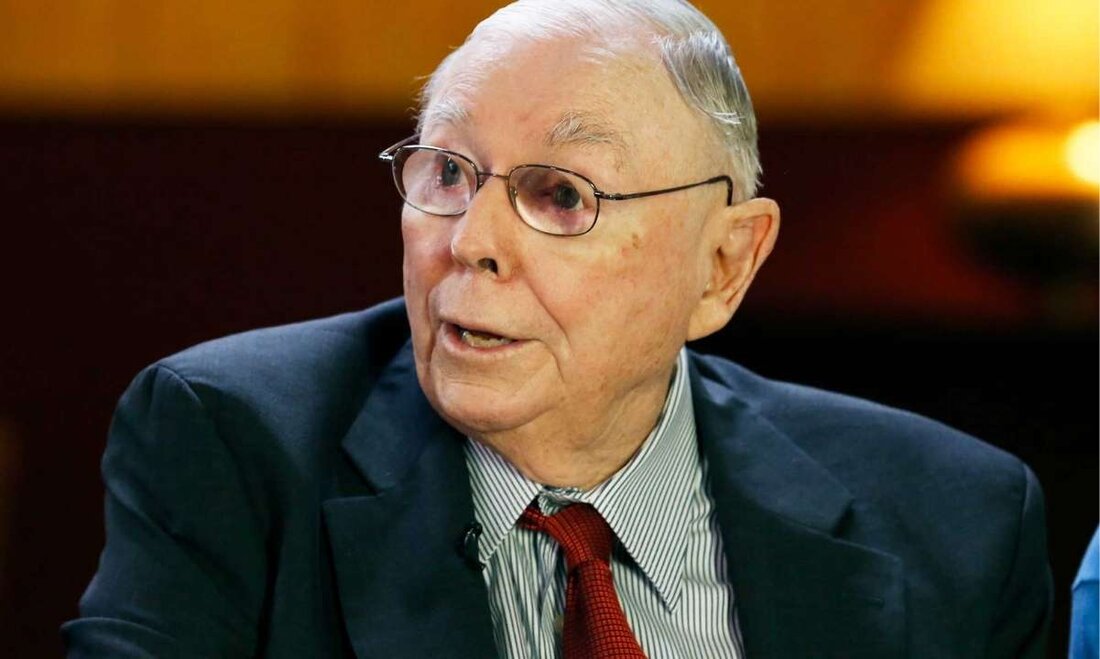Joe Kernen calls Charlie Munger for ignorance of Bitcoin
CNBC moderator Joe Kernen fought against the recent Tirade by the deputy chairman of Berkshire Hathaway, Charlie Munger, against cryptocurrency on Thursday. In particular, the moderator called the billionaire's assessment of Bitcoin and at the same time criticized his lack of knowledge on this topic. Munger's latest Rant Munger appeared on Wednesday in the Squawk Box from CNBC, where Rebecca Quick asked him to work out the arguments against his anti-crypto position. After a short break, Munger declined this. "I don't think there are good arguments against my position," he said. "I think the people who oppose my position are idiots. The relevant" position "...

Joe Kernen calls Charlie Munger for ignorance of Bitcoin
CNBC moderator Joe Kerne fought against the recent Tirade by the deputy chairman of Berkshire Hathaway, Charlie Munger, against cryptocurrency on Thursday.
In particular, the moderator called the billionaire's assessment of Bitcoin and at the same time criticized his lack of knowledge on this topic.
mungers the latest rant
on Wednesday munger appeared in the Squawk box from CNBC, where Rebecca Quick asked him to work out the arguments against his anti-crypto position. After a short break, Munger declined this.
"I don't think there are good arguments against my position," he said. "I think the people who oppose my position are idiots.
The "position" of the investor in question was published in Wall Street Journal at the beginning of this month, in which the united states were argued should completely forbid, just as China did. He compared cryptocurrencies neither with goods nor with securities, but with "gambling contracts".
In an interview on Wednesday, he had a different name for the investment class:" Crypto shit ".
"Sometimes I call it crypto crappo, and sometimes I call it crypto shit," he continued. "It's just ridiculous that someone would buy this stuff."
In the middle of the contagious core melting of crypto in the summer of 2022, Munger Galam crypto as "open sewer system" bad actors, that Existence "undermine the national currencies in the world". During the interview this week, he confirmed his defense for Fiat currencies.
"You can hardly imagine anything on earth that has done more good for humanity than national currencies," he said. “If someone says that I will create something to replace this national currency ... is it idiotic.
Munger continued to describe cryptocurrencies as "worthless", "not good", "crazy" and "massive stupid", and added that their permission was "anti-social" and that intelligent people should "completely avoid" them.
Kernen's answer
The next day, Joe Kernen called that Mungers comments were a fundamental, "pedestrian" point of view that he has belonged to in the last "20 years" of people The subject were completely ignorant (although Bitcoin is now only 14 years old).
"I don't think he has read the first page of the Bitcoin standards or which book you want to read," he said.
Joe Kernen
The Bitcoin Standard, written by Saifedean Ammous, is a book that examines the historical development of the currency worldwide and argues that Bitcoin will eventually turn out to be the world currency of the election. It presents money as something that naturally arises on the free market, and not as something that a national government needs as a issuer.
.

 Suche
Suche
 Mein Konto
Mein Konto
